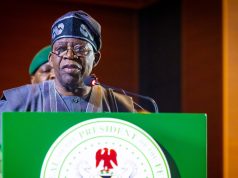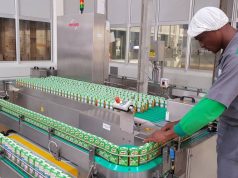Nigeria’s rebased Gross Domestic Product (GDP) shows a 41.7 per cent increase in nominal estimates, but experts say the updated figures do not reflect the lived reality of most Nigerians.
At a session tagged “Insights from the rebased GDP data” hosted on Wednesday by the Nigerian Economic Summit Group (NESG), economists and fiscal experts cautioned that the gains are not inclusive and warned against using the data to justify excessive borrowing or misaligned policy decisions.
The National Bureau of Statistics, on 21 July, disclosed Nigeria’s rebased Gross Domestic Product (GDP) stood at N372.82 trillion in 2024, equivalent to $243 billion. Based on a 2019 base year, the new figures show the nominal GDP rose from N205.09 trillion in 2019 to N372.82 trillion in 2024.
Ekundayo Mesagan, a development economist, acknowledged the rebased data but stressed that it hasn’t translated into better conditions for Nigerians.
“It’s like you having a situation of happy statistics, but unhappy people. That is what we have.
“GDP structure… we are going to now have this specific target. This specific policy targeted at the entertainment sector. How can we bring more youth on board and empower them through this area?” he questioned.
Mr Mesagan said the rebased data should help the government shift from a “top-down” approach to a more bottom-up strategy.
Other speakers reinforced Mr Mesagan’s argument that the rebased GDP could paint a misleading picture of progress, if not reviewed holistically.
Yinka Babalola, country director at the International Budget Partnership, said the new figures have not altered the government’s fiscal capacity or improved conditions for ordinary Nigerians.
“It hasn’t changed people’s circumstances from one day to the next,” she said. “It doesn’t put more money in her pockets, it doesn’t make agricultural inputs for her farm cheaper, it doesn’t improve her primary healthcare centre.”
Faith Iyoha, who led the NESG’s technical presentation, acknowledged that the economy remains deeply informal and productivity “structurally weak.”
She urged the government to target specific sectors and link GDP data with welfare and inequality indicators.
Data-driven policy making
Tope Fasua, special adviser to the president on economic affairs, offered a government perspective.
According to him, even if Nigeria’s GDP reaches $550 billion or $600 billion, it still reflects progress, and he was pleased that the country is now placing greater importance on data.
On Nigeria’s debt-to-GDP ratio, Mr Fasua said, “It means that we are about 40 per cent now, and that is good. ECOWAS says you can do up to 60 per cent, and the World Bank says you can do up to 70 per cent.”
He argued that the rebasing gives Nigeria more room to borrow and grow its productive capacity.
“The idea is not to go on a borrowing spree. No. There is a borrowing plan already in the MTEF,” he said.
Fiscal space
Ms Babalola noted that increasing the GDP doesn’t solve fundamental problems, as it may give the impression that issues like the fiscal deficit are smaller relative to GDP, but that illusion won’t hold as the underlying realities will eventually surface.
“The only way Nigeria can actually create more fiscal space is by increasing our net revenues, reducing our net expenditures, or increasing the financing of our fiscal deficit by borrowing more domestically or externally,” she said.
Ms Babalola also warned that the rebased GDP has no immediate impact on ordinary citizens, as it neither puts more money in their pockets, makes farm inputs cheaper, nor improves access to basic healthcare.
On revenue mobilisation, she said: “We tend to go for the low-hanging fruits of increasing rates… but then there are other tax categories… high net worth individuals and larger corporations who mostly are not paying their fair share.”
Markets misaligned
Teslim Shitta-Bey, chief economist at Proshare, who represented the CEO, Femi Awoyemi, said Nigeria’s capital market does not reflect the real economy.
“We find out there’s very little alignment between it and the structure of the economy. There is no agricultural company in the prime segment of the market,” he said.
Mr Shitta-Bey urged Nigeria to list public institutions to generate value and attract investment.
“We would have expected that companies like the NNPC, for example… would actually be listed.”
While the rebased GDP offers an updated view of Nigeria’s economy, speakers emphasised that the data must translate into practical and inclusive policies.
READ ALSO: Nigeria’s rebased GDP remains fourth in Africa despite expansion
Ms Iyoha noted that productivity remains structurally weak and called for targeted interventions in key sectors.
Ms Babalola argued that GDP alone cannot determine how resources are allocated, adding that citizens must be involved in shaping economic decisions.
As Nigeria pursues its ambition of becoming a $1 trillion economy by 2030, panellists agreed that inclusive governance, better data, and citizen-focused reforms will matter more than statistical recalibrations.









